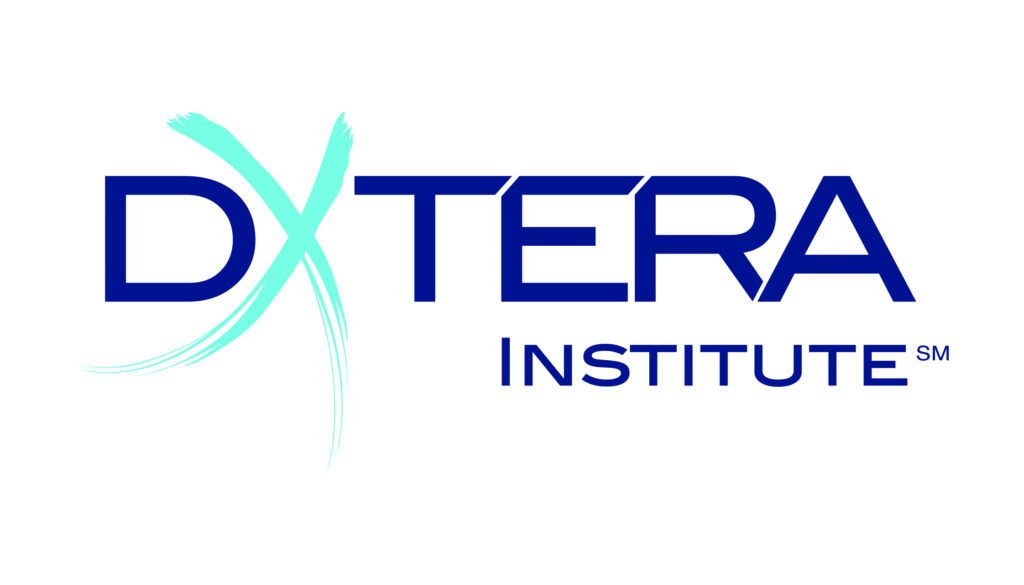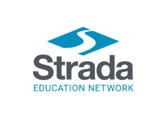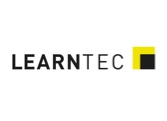NGBD 2020 Symposium
DXtera Institute®, Universitat Oberta de Catalunya and contributors announce that the Next Generation By Design 2020 Symposium is going virtual!
This year our event goes online over a series of three webinars that will be held every Tuesday from May 12 – May 26 at 9:00 AM Eastern Standard Time / 15:00 Central European Summer Time.
ABOUT THE SYMPOSIUM
The Next Generation By Design (NGBD) Symposium is an annual event that brings together education industry leaders and practitioners who are actively designing, developing, deploying and promoting next generation software and systems to more effectively support student success. Over the past few years, the Symposium has engaged hundreds of participants from over twelve countries and international organizations in action-oriented discussions that lead to collaborative projects. Learn more about the Symposium in this short video.
This year, due to the COVID-19 pandemic, the event is going virtual and will consist of four webinars, each centered around a theme. A keynote speaker will set the context of each session for 15 minutes, followed by panelists that will share their innovations and insights for 10 minutes. There will then be 30 minutes for virtual participant engagement to discuss and develop actionable projects to collaboratively transform the market. Participants will also be invited to continue the discussion in the DXtera Online Community in the weeks between the webinars.
SYMPOSIUM THEMES
The themes for the 2020 NGBD Symposium are built off of the topic areas that emerged from the 2019 Symposium. Symposium participants will be engaged in the next phase of development and shared actions.

COMPARATIVE TAXONOMY MANAGEMENT
In the education and workforce sectors, the market challenge to draw relationships between learning outcomes, competencies, certificates, job skills, labor market requirements, or degrees is present for all of us and is a failure that prevents the optimization of products, for the future of work. An emerging vision to enable the learner or consumer to not only exchange desired data amongst numerous entities, but to also allow relationships to be drawn between many existing taxonomies for use by the consumer is demanded. This track will explore and share collective activities to solve this market challenge with a goal of developing the infrastructure needed to build the education and employment marketplace of the future by creating searchable, machine-readable competencies and skills repositories that draw from both public and private data assets.

NEXT GENERATION EDUCATION SYSTEMS
The vision of a Next Generation Educational Systems is characterized by a departure from traditional, monolithic systems towards ecosystems of educational applications and enterprise infrastructure services that allow for a broadening marketplace of solutions and increased consumer choice.

EXPLORING NEW FRONTIERS
This theme is designed to shed light on the innovations that are emerging and have the ability to transform the education institutions (all levels), workforce and industry . Each panelist has been selected based on their leadership with developing, deploying or scaling an innovative approach to a challenge in education, workforce development or industry. The innovations and visions presented, along with additional sharing from participants at the Symposium, are intended to spur discussion on collaborations or new efforts.
WHAT TO EXPECT
The NGBD 2020 Symposium will be a collaborative, engaging forum where attendees will:
- Learn and share best practices and emerging trends to transform the education infrastructure
- Participate in collaborative discussions among key leaders and practitioners
- Hear about opportunities to get involved in demonstration projects
- Develop an action plan for creating and promoting the NGBD environment
WHO SHOULD ATTEND?
Those who attend this symposium are invited to collaborate on projects through the DXtera Institute consortium that bring the NGBD environment forward in actionable ways. Invitees will engage with leaders and practitioners from all areas of higher education:
- Researchers and practitioners, both from a technology and a pedagogy background from the education sector
- Educational institution and industry representatives, decision-makers, university presidents, and vice presidents
- Managers and directors of education who are interested in promoting these technologies in their institutions
- Education technology entrepreneurs, investors or foundation leaders
- Policymakers and influencers at all levels of government
SCHEDULE
All webinars in the series will be held at 9:00 AM Eastern Standard Time / 15:00 Central European Summer Time.
| Date | Topic | Speakers | |
| May 12 | Comparative Taxonomy Management | Borhene Chakron, UNESCO Matt Gee, Brighthive Ingo List, Antares Project GmbH Francesc Santanach Delisau, Universitat Oberta de Catalunya | |
| May 19 | Next Generation Education Systems | Mike Bourque, Boston College Janette Vesalainen, DigiOne project Dr. John Whitmer, ACT Christophe Speroni, bettermarks Dr. Marc Alier, Universitat Politècnica de Catalunya | |
| May 26 | Exploring New Frontiers | Hanna Elving, Swedish Testbed Project Dr. David Baneres, Universitat Oberta de Catalunya Daniel Knox, SUNY Alejandro Jara Weitzmann, Smart Republic |
SPEAKERS
May 12, 2020: Comparative Taxonomy Management
Keynote
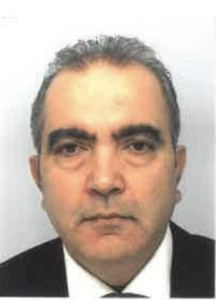
Director of Policies and Lifelong Learning Systems Division
UNESCO-HQ
Borhene Chakroun is an engineer and has a PhD in Education Sciences from Bourgogne University in France. Borhene worked, during the 1990s, as trainer, chief trainer, project manager. He has also worked as short-term consultant for the EU, World Bank and other international organisations before coming to the European Training Foundation (ETF) in 2001. At the ETF, Borhene worked as Senior Human Capital Development specialist. He is now Director of Policies and Lifelong Learning Systems Division at UNESCO-HQ. Borhene conducted a range of policy reviews and skills systems diagnosis in different contexts. He has authored and co-authored various articles and books in the field of skills development and lifelong learning. Much of his most recent work focuses on global trends in reforming education and training systems and global agenda for skills development in the context of the 2030 Sustainable Development Agenda.
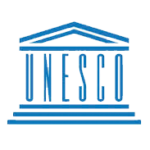
Panelists

Co-Founder & CEO
Brighthive
Matt Gee is co-founder and CEO at BrightHive, a public benefit corporation that designs, develops, and manages data collaboratives. BrightHive works with public and private-sector collaboratives to put in place a legal, technical, and governance framework called a data trust, empowering collectives of organizations to responsibly share, integrate, and use their respective data sources for a combined purpose. Matt is a Data and Society Fellow at the University of Chicago’s Knowledge Lab and the co-founder of the Data Science for Social Good fellowship. Matt has led dozens of major research and open innovation initiatives in interoperability, data governance, machine learning, and AI. Prior to BrightHive, Matt worked at the US Treasury, University of Chicago’s Center for Data Science and Public Policy, and has founded several social impact companies using data to improve society. He’s served as an advisor to Code for America, DataKind, and the World Bank, and currently serves on the board of Candid. Matt is a graduate of Brigham Young University and the University of Chicago.


Founder & CEO
Antares Project GmbH
Ingo List is the founder and CEO of Antares Project GmbH, the German market leader for educational media distribution systems. He was born 1967 in Lübeck, Germany and studied physics at the University of Kiel where he founded Antares Project in 1993. Ingo has two daughters who share his passion for sailing.
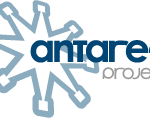
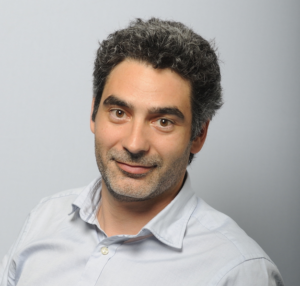
eLearning Specialist and Manager
Universitat Oberta de Catalunya
Francesc Santanach-Delisau is e-learning expert and Lab team leader at eLearn Center, the e-learning research and innovation center of the Open University of Catalonia (UOC – Universitat Oberta de Catalunya). He is in charge of e-learning laboratory – providing infrastructure and the set of instruments needed for experimentation in real classrooms – and the lead of Learning Analytics – providing a data analytics service for research and innovation projects -. He manages projects in the field of learning technologies, learning standards, interoperability, learning analytics and Artificial Intelligence. He holds a Master degree in Computer Science and Software Engineering from the Polytechnic University of Catalonia (UPC – Universitat Politècnica de Catalunya).
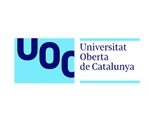
May 19, 2020: Next Generation Education Systems
Panelists

CIO and VP, Information Technology
Boston College
Michael Bourque has over thirty years experience in the field of information technology. He was named Vice President for Information Technology and Chief Information Officer at Boston College in January, 2010. In that capacity, he oversees the planning and operations of information technology across the University. This includes strategic planning, customer service, project management, network and systems infrastructure, applications and systems architecture. He joined higher education, at Boston College in 2003, after fifteen years in industry.
Prior to joining Boston College, he was Vice President, Business Systems at Parametric Technology (PTC), a $1B product development and mechanical software provider. During his five years at PTC, he oversaw a major push in systems modernization in support of global operations.
Before joining PTC, he spent fifteen years at Raytheon, a global aerospace leader, in positions of increasing responsibility. He led major company-wide projects such as Enterprise Resource Planning (ERP) and the Year 2000 Program Office. He was also active in Six Sigma quality initiatives and negotiating corporate volume procurement agreements for technology.
Michael has taught project management in the Carroll School of Management at Boston College. He also previously taught courses in mathematics and information systems for Fitchburg State University. He is active in the Association of Jesuit Colleges and Universities (AJCU) Conference on Information Technology Management having served as president and vice president. He holds a masters degree in engineering management from the University of Iowa and a bachelors in electrical engineering from Merrimack College.


Project Specialist
DigiOne project
Janette Vesalainen is a Project Specialist at DigiOne project. DigiOne operates in Finland and aims to construct a national digital learning and education platform. Janette’s main responsibilities are related to user co-operation and communication. She has studied educational sciences in the University of Jyväskylä and has a passion for developing teaching.

Senior Director for Data Science and Analytics
ACTNext, ACT Inc.
John is the Senior Director for Data Science and Analytics for ACTNext at ACT, Inc. In this role, he leads a team of data scientists and research to conduct foundational research and to develop operational applications and algorithms. These algorithms are embedded within ACT products and also power partner institutions and application. Prior to joining ACT, John led learning analytics research and development at Blackboard, the educational technology company and also led large-scale educational technology initiatives for the Chancellor’s Offices for the California State University and California Community Colleges. Underlying this technology work is a commitment to serving underserved and marginalized students. John holds a Doctorate in Educational Leadership from UC Davis and a Master’s Degree in Sociocultural Anthropology from UC Davis.

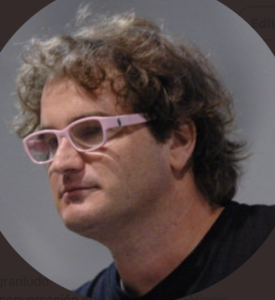
Associate Professor
Universitat Politecnica de Catalunya
Marc Alier (1971) received an engineering degree in computer science and a Ph.D. in Sustainability at the Polytechnical University of Catalonia (UPC). He is an associate professor at UPC. The last 19 years have worked in research and development related to the e-learning industry. He has participated in the development of several LMS and authoring tools, and has been an online teacher. Since 2001, he has taught project management and computing ethics. He is has been director of a master’s program in enterprise software and several post-degree courses (Mobile development, Cloud Computing, Comunity Management) at UPC School. Since early 2004, he has been a developer in the http://moodle.orgcommunity contributing with third-party modules and core functionalities such as the Wiki module, the design of the Webservices layer, and the IMS LTI consumer. He has been the director of the http://ice.upc.edu. He is also a book author at http://pansingluten.net and http://aprendizdeluthier.com, and a prolific podcaster at http://mossegalapoma.cat, https://cabalgaelcometa.com, and http://zetatesters.com.
Google Schollar profile: https://scholar.google.com/citations?user=POVraJQAAAAJ&hl=en

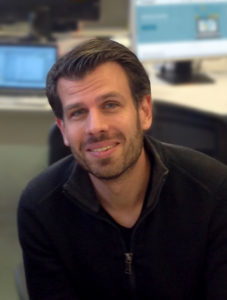
Co-Founder and Chief Product Officer
bettermarks
Christophe founded his first start-up in 1999 and since then he is enthusiastic about the possibilities of the internet. In 2008 he founded the adaptive learning system “bettermarks” together with Arndt Kwiatkowski and Marianne Voigt. As Chief Product Officer, he is responsible for the platform and pursues the goal of making learning maths easier.
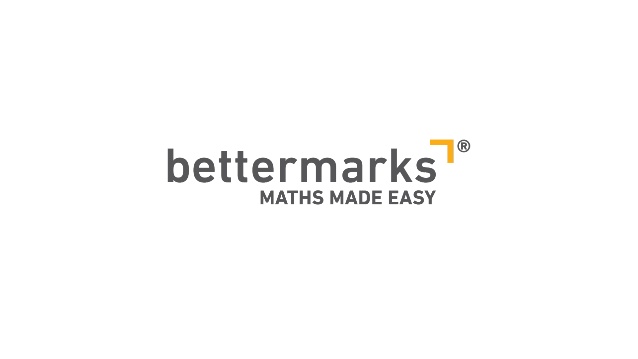
May 26, 2020: Exploring New Frontiers
Panelists

Assistant Provost for Academic Planning & Student Success
SUNY
Daniel Knox is the Assistant Provost for Academic Planning & Student Success at SUNY System Administration. He holds a B.A. in English Language & Literature from the University of Chicago, and a Ph.D. in Educational Policy and Leadership from the University at Albany, SUNY. His primary role is to work collaboratively with SUNY stakeholders to develop, implement, and assess transfer policies across SUNY’s 64 campuses. In addition, he supervises several related student success initiatives, including SUNY’s Reverse Transfer program, university wide cross registration, and provides program direction for SUNY’s Degree Planning and Audit initiative (‘Degree Works’). He also serves as co-principal investigator for the College-in-Prison Reentry Initiative, a 5-year project funded by the New York State District Attorney’s Office to pilot the delivery of standardized college programming in New York State prisons.

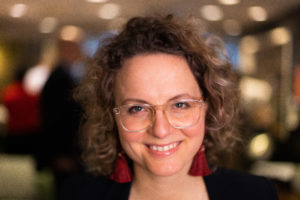
Manager
Swedish Edtest
Hanna Elving is the manager of Sweden’s national testbed for edtech, Swedish Edtest
(www.edtest.se) Together with several schools, municipalities, businesses and researchers she is developing a new testing cultural where education and tech innovation can meet and interact in order to improve quality and relevance in digital learning tools. Hanna has a background as a political advisor in the Swedish Parliament and spent several years at Business Sweden in Shanghai. She is currently working for the Municipality of Nacka who is the initiator of Swedish Edtest.

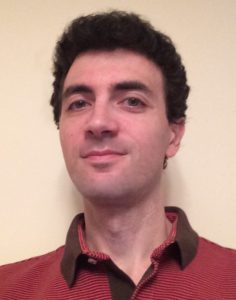
Lecturer
Universitat Oberta de Catalunya
David Baneres received a BSc in Computer Science (2001) and a Ph.D. in Computer Science (2008) from the Universitat Politècnica de Catalunya, Spain. He is currently a full-time lecturer at Universitat Oberta de Catalunya in the IT, Multimedia and Telecommunications department. His research interests include innovative e-learning systems such as intelligent tutoring systems, automated assessment, learning analytics and the application of AI in educational contexts. Currently, he is co-coordinating the development of an intelligent tutoring system and an early warning system for UOC Campus.
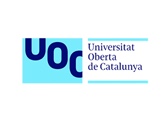

CEO and Co-Founder
Smart Republic
Alejandro Jara Weitzmann is an economist specializing in the fields of sustainable development, impact investment frameworks and digital social innovation. He is CEO and Co-Founder of Smart Republic, a new social digital network company based in the UK and France, in the fields of sustainable knowledge exchange platforms for communities and impact companies. He is the Latam representative at the Observatoire Social International (OSI), led by ENGIE, and the International Cooperation Director at ACTI, a Chilean IT Association.
He holds a BA in Economics from the Catholic University of Chile, a Master of Philosophy (Mphil) from the London School of Economics and Political Science (LSE) where he also undertook PhD studies. He was awarded the Central Research Fund Grant of the University of London for his doctoral thesis research. He was a Visiting Fellow of the Government Department of the London School of Economics and Political Science (LSE).
He has served as senior executive at CODELCO, the world’s largest copper company and as senior advisor for the mining and energy sectors; representative to the UN Global Compact; senior member for leading innovative initiatives in France and the UK: the ENGIE Rassembleurs d’Energies Fund – pioneering Green Energy Fund – and Novante UK, compliance services for major projects. He has also served as advisor to World Bank and UN agencies and to the Chilean Ministry of the Presidency on International Free Trade Agreements with the US and EU.
Smart Republic has been awarded the Label of the French Pole Financial Innovation, PFI, and is also accredited at the Global Entrepreneur Programme, GEP, at the Department for International Trade of the UK Government. Smart Republic has joined the DXtera Community.
In January 2020 Alejandro was awarded the French Talent Passport, the highest award to international innovation entrepreneurs given by the French Government.
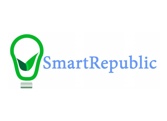
View Recordings of Previous Webinars


